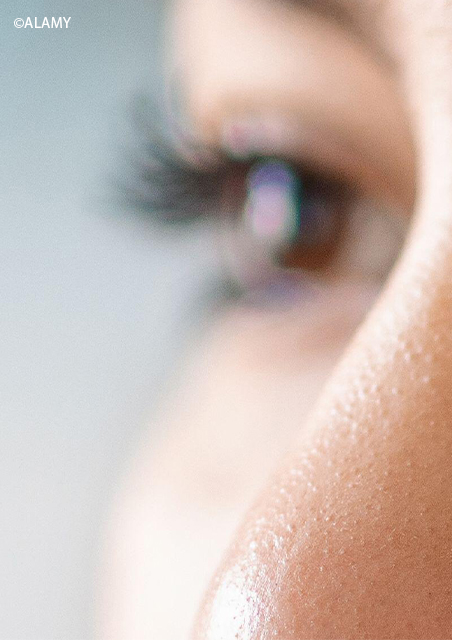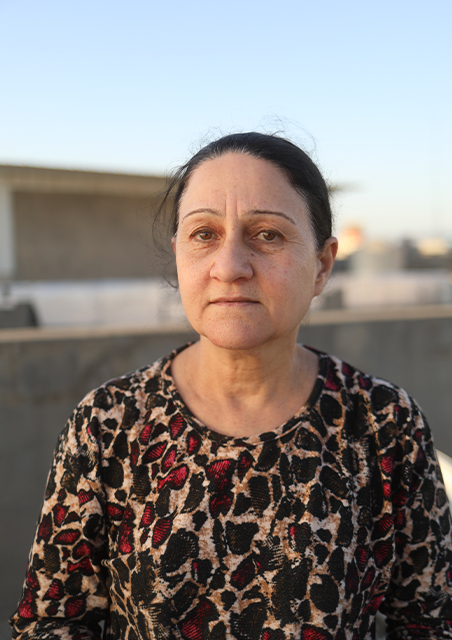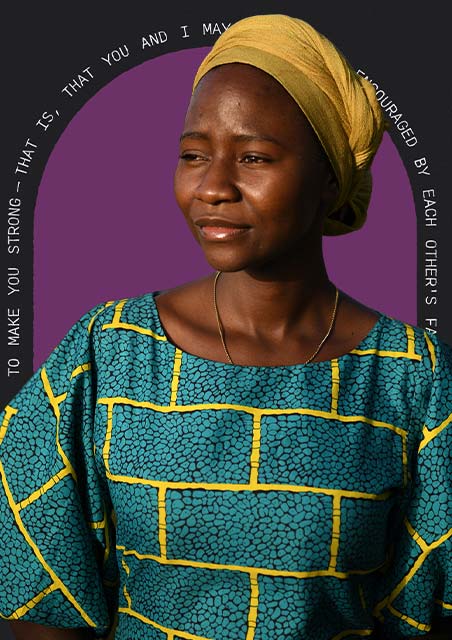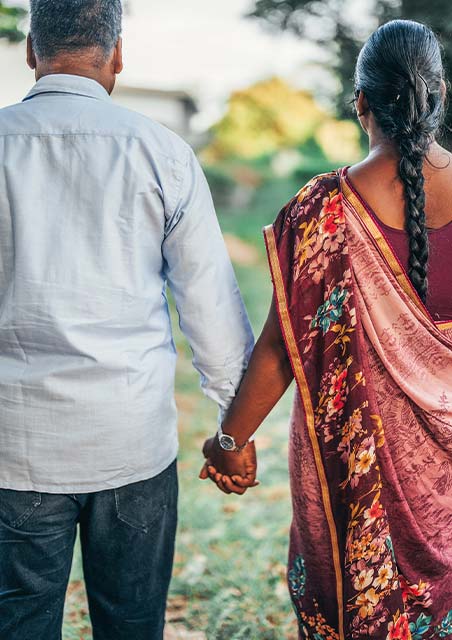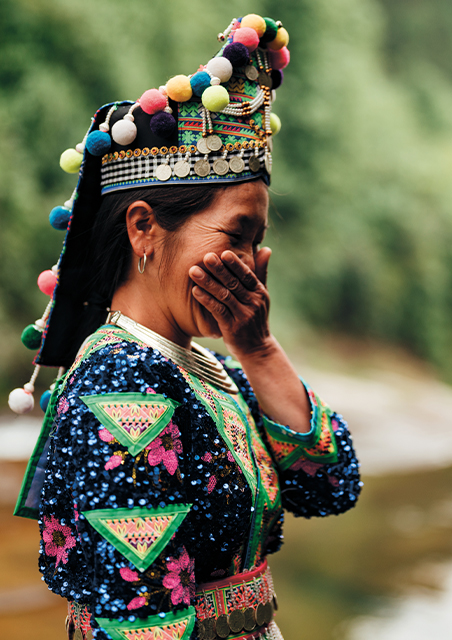Six years later: Praying for the kidnapped Chibok girls
It's been six years since the Chibok schoolgirls were kidnapped by Boko Haram. Today, 112 of them are still in captivity. In this post Ruth - another teenager who was taken - shares how God helped her during her traumatic experience.
14 April 2020
14 April marks six years since Boko Haram kidnapped over 200 girls from a secondary school in Chibok, north eastern Nigeria. Today, 112 of them still remain in captivity. Please continue to pray for their safe release – while the news cycle moves on, they still need our prayers and those who are able to return to their homes need trauma care and support as they integrate back into their communities.
The cruel tactics of extremists Muslim militants in this region doesn’t change. Less than a month ago, a 16-year-old called Joy Dankaka was kidnapped from Ikara in Kaduna State. She was held by Hamza Bello, the Chief Imam of Ikara, and forced to become a Muslim – given to a Muslim family and not allowed to return home. Her situation continues and lawyers are involved, though coronavirus means courts are closed – please pray for Joy and her family.
Ruth was 14 when Boko Haram kidnapped her
Ruth*, now 20, wasn’t one of the Chibok girls, but she was also kidnapped by Boko Haram in 2014 when she was a teenager. Hearing her story can help us understand how best to pray for those who have been taken – and those who have returned.
“It was a Friday evening,” Ruth remembers. “I was at home, getting ready to play with my friends when we heard the gunshots. It happened so quickly and before we knew it, Boko Haram was heading straight toward us on their bikes. I was so scared.
“I remember my mother shouting, ‘Ruth, ki yi gudu – run for your life!’ I kept looking back to see in what direction my parents ran, but I couldn’t tell. I was exhausted and I had to stop running – and that’s when they grabbed me.”
Ruth was taken by the Boko Haram militants, driving for hours into the forest. She had no idea where she was when she arrived at the camp where she would be kept for several years.
Forced to convert
Like many before and after her, Ruth suffered great atrocities. “That first year was hell. I was in agony and pain… Each day after they returned from their attacks, they would beat and rape us. My whole body was covered in sores and I became very skinny because they didn’t give us enough food. They told us to denounce Christ and become Muslims if we wanted to be freer in the camp. I refused to deny Christ, and I kept crying and praying to God to rescue me.”
Eventually, after a year of this horrendous treatment, Ruth did tell them she would convert Islam. And her situation in the camp did ‘improve’. Ruth was married off immediately and suddenly had a room to sleep in by herself – unlike the others who were all packed into one big space. She had a baby boy, Samaila. “My decision took away (some of) my physical suffering, but I was still miserable. When we were taken for salat (prayers) I would recite Psalm 23 in my heart. I still wanted to believe that Jesus was my good Shepherd.”
Days turned into weeks, weeks into months and months into years, but no one came to rescue Ruth. That does not mean she stopped looking for a way out. “Every time I washed my clothes at the stream, I tried to figure out a way to escape.”
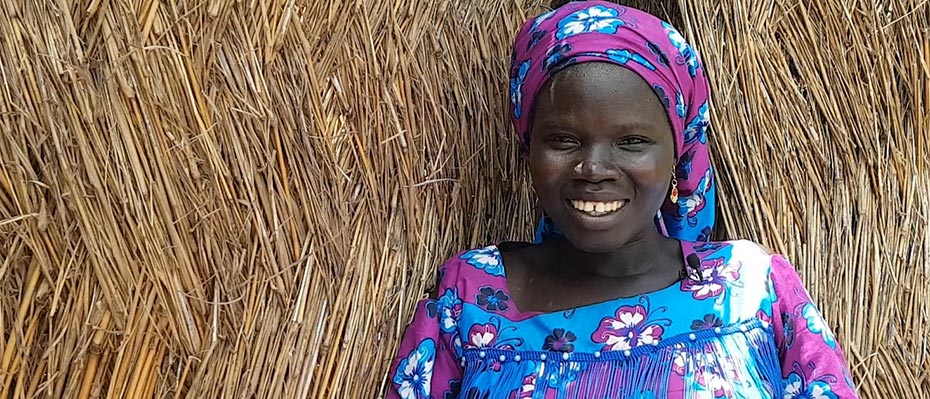
Ruth, kidnapped by Boko Haram, photographed after her release
Escape
Her chance came one afternoon when the men had left the camp, possibly to carry out other attacks, and left the women and children unguarded. “That day in 2017, God showed me a way and He gave me the courage to run. I placed Samaila on my back and fled. I didn’t look back.”
Ruth ran as fast as she could, regardless of being two months pregnant and having extra weight on her back. Late that evening, she reached a military checkpoint. After questioning her, the soldiers gave her a place to sleep and eventually helped Ruth to reunite with her family.
Ruth was nervous about reuniting with her family, and didn’t know what her reception would be. “When I saw my sister and brother, tears of joy rolled down my cheeks. When I arrived home my mother was elated. She kept singing, ‘God is alive, yesterday, today and forever’. She held me and my son and we all cried together.”
Treated as an infidel
But, sadly, Ruth’s father did not share their joy. “When my father saw Samaila he asked, ‘Who is this?’” remembers Ruth. His reaction is one that happens frequently when kidnapped women return to their villages after being taken by Islamic militants – frequently they have children or are pregnant, and their families reject these babies. The women themselves are often treated as ‘traitors’, adding another layer to the trauma that they have already experienced.
“My father began to treat me as an infidel because of my son and the child in my womb. ‘I don’t want to see you or this boy anywhere close to me,’ he said. Those words broke my heart!”
People in Ruth’s community joined in the rejection, calling Samaila ‘Boko soldier’ and mocking Ruth. The pressure and rejection exacerbated the young mother’s own struggles to love and accept her son. “Anytime Samaila called me ‘mama’ I slapped and chased him away. I also tried to think of ways to abort my unborn child. But God did not allow that.” God had other plans for Ruth and her family.
A miraculous healing
In 2017, Ruth and 19 other survivors were invited to an Open Doors trauma care programme. Towards the end of the week, Ruth began to heal through the teaching and counselling. The counsellors saw her heart soften towards Samaila: “Where she took little notice of him before, we started seeing her lovingly patting him on the head and even laughing and playing with him,” says Patience*, one of the Open Doors trauma care workers. “It was a miracle unfolding in front of us. This showed us the power of God’s Spirit and His Word, and the impact the truths she learned in the trauma programme.”
“My pain has healed,” Ruth says. “I have learnt to forgive the people that mocked and insulted me, and I have forgiven my father too.” This amazing forgiveness wouldn’t be possible without God.
The impact of the trauma care seminar did not stop with Ruth. When Ruth returned from the seminar, her father took the workbook she was given and started reading it. To her surprise, he too found healing: “Today, my father carries Samaila around in his arms and takes him for walks. This is something I never imagined possible.
“Thank you so much for the opportunity to attend your seminar. It has brought back peace to our home.”
Ruth is one of many women who have been kidnapped by Boko Haram and other militants in Nigeria. They continue to kidnap people, and there is already evidence that they are using the restrictions of coronavirus to target those who are staying in their homes to stop the virus spreading. We praise God for those who manage to escape, but they still need our prayers for long-term healing – and, of course, women and girls who are still in captively need our ongoing prayers. Like the 112 Chibok girls we remember today, and the families who wait for them.
Please pray
- For the 112 girls kidnapped from Chibok, and for Joy Dankaka, that they may be safely released and know God’s presence – and for their families to be strengthened and comforted
- For all women and girls who have been released or who have escaped, that God would heal them from their trauma and use the work of Open Doors trauma counsellors
- That God would convict Boko Haram militants of their sin and that He would bring them to Him.
A version of this article first appeared in the Sunday Express.
